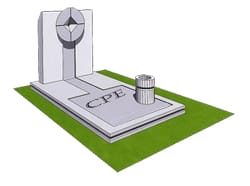“I wanted to create a direct path to the permanent contract: the first employment contract,” declared the Prime Minister on January 16 during a press conference at Matignon. He was presenting the “second phase” of his employment plan, focusing on youth unemployment. On April 10, after three months of social crisis, union mobilizations, and student and high school protests, Dominique de Villepin, who had until then been inflexible, conceded and withdrew Article 8 of his Equal Opportunities Law. In three words, the CPE is dead. President Jacques Chirac decided, preceding the government leader’s intervention, “to replace Article 8 of the Equal Opportunities Law,” which created the first employment contract, “with a mechanism in favor of the professional integration of young people in difficulty.” Dominique de Villepin proposed in his press conference at Matignon “to engage social partners in a discussion without any preconceptions about the security of career paths, precariousness, and the integration of young people into employment.”
The street was heard. The unions are satisfied. The Student Confederation calls for the lifting of university blockades and although Bruno Juillard, president of UNEF, wishes to maintain pressure and the demonstration on April 11 in many French cities, the “CPE crisis” ends with the “backtrack” (term used by Philippe de Villiers) of Dominique de Villepin.
Will France come out of it unscathed? Certainly not. The political crisis will be enduring. In the Journal du Dimanche, former President Valéry Giscard d’Estaing interprets this crisis as “a disorganization of institutions reaching a level unknown since the beginning of the Fifth Republic.” However, he did not fail to mention the frequent upheavals experienced during the Fourth Republic. A time that those under sixty have not lived through when the voice of decision-making power struggled to be heard over an institutionalized hubbub. On April 10, 2006 who decided the end of the CPE? President Jacques Chirac, tired of French anti-reformism? Dominique de Villepin, who finally understood how a head of government should govern? Nicolas Sarkozy who did not want a reform that was not his and whose popularity ensured his party’s alignment with him for job security during elections? The unions simply through the strong mobilization they were able to provoke (3 million demonstrators) legitimized their political beliefs? The youth anxious to build its own future? Fourth Republic atmosphere…
Power was challenged because it did not respect the citizens. Dominique de Villepin apologized on Monday “for wanting to act quickly, because the dramatic situation and the despair of many young people demanded it, for having proposed a strong solution, out of conviction that beyond the necessary commitment of the state, only a better balance between more flexibility for the employer and more security for employees will allow us to break with unemployment in our country. This was not understood by all.” He regrets it. He concedes through his words his political amateurishness, his naiveness (to be less harsh), and especially his lack of awareness of the terrain. By forgetting the Fillon law of 2004, which requires dialogue with unions for any changes to the Labor Code, and by using Article 49.3 to have the CPE voted on in parliament, he has forgotten his gentle words and his diplomatic nature to only relinquish his pride. He has weakened himself. He’s isolated himself. He’s lost. Like a political suicide. Today, Dominique de Villepin has placed the general interest of the Nation above his own ego. This feeling might perhaps save him according to the French.
The debate is now open. The President of the Republic, the Government, the Unions, the Students, and the Opposition are responsible for this three-month conflict. Faced with their responsibility, they must listen to each other, propose and understand each other. “Our responsibility is to prepare the future of our country. I hope we can all come together to move forward.” This is Dominique de Villepin’s wish. It is a wish shared by all. But isn’t it too late?


